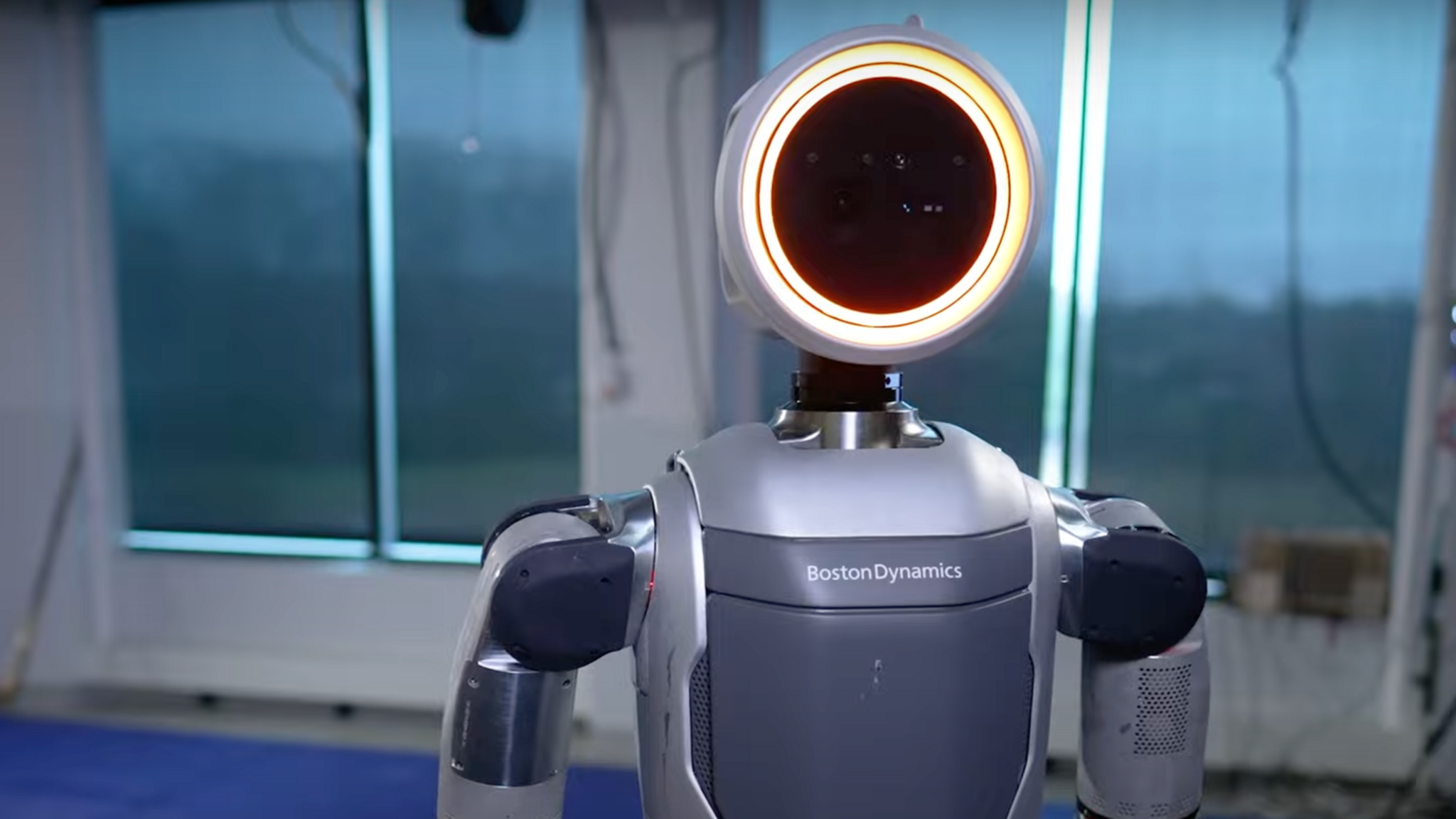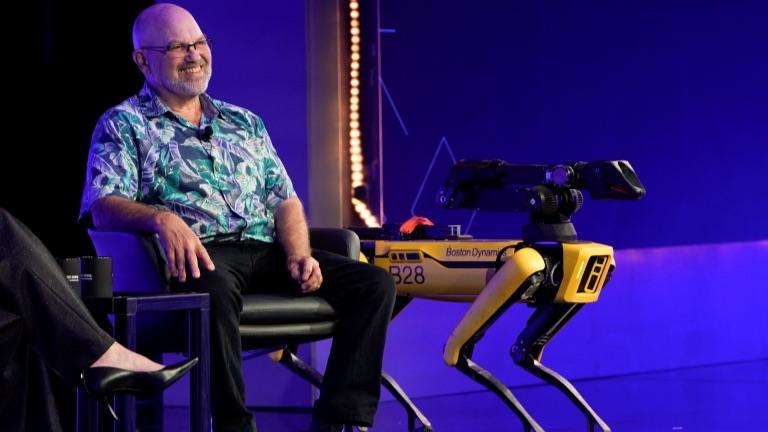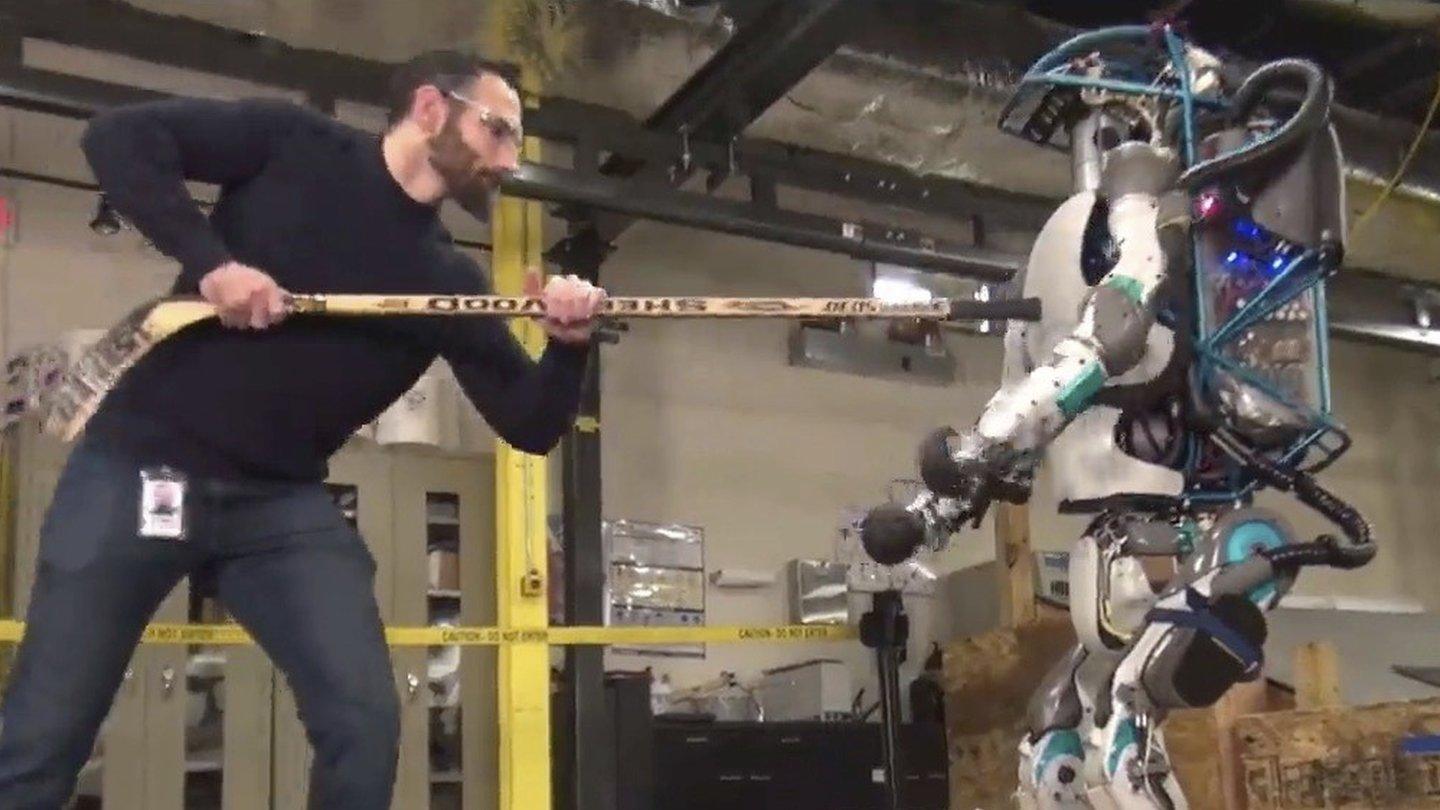Bye, robot: Atlas HD retires after 11 years of jumps, flips and falls
From 2019: Boston Dynamics Atlas robot twists and somersaults
- Published
Atlas HD, a humanoid robot which can run, somersault and do backflips, has been retired after 11 years.
"Now it’s time for our hydraulic Atlas robot to kick back and relax," its maker Boston Dynamics said in a video which showed the robot's highlights and lowlights.
Various incarnations of Atlas went viral over the years, delighting and terrifying viewers in the process.
Robot expert Dr Ingo Keller said its "increasingly human-like abilities" had "helped push the boundaries of what robots can do."
On Wednesday, the company unveiled its replacement for the hydraulic Atlas - a fully electric model which it says will be "stronger, with a broader range of motion."
To illustrate its point it has released a new video which shows the robot contorting its limbs in ways more complex than its predecessor could manage.

The new Atlas
Dr Keller, head of robotics at the National Robotarium, in Edinburgh, told the BBC that as well as "accelerating key technologies" the original Atlas had "captured the public's imagination."
“As an industry, we still have a long way to go to match the incredible capabilities of the human body, but I have no doubt that Atlas will be remembered as an important stepping stone on that journey," he added.
The first version of Atlas was made in 2013 as part of a robotics competition for the US military. It was designed to help in search and rescue missions after disasters.
At the time it was described as, external "one of the most advanced humanoid robots ever built."
Later versions of the robot were not made for the government.
"Traditionally, we have focused on legged robots because we wanted to build robots that could balance and move dynamically," the company said on the release of the electric Atlas.
"The humanoid form factor is a useful design for robots working in a world designed for people."
But - for all its pioneering dexterity and poise - the now retired Atlas was still sometimes flummoxed by basic tasks.
In its farewell video, Boston Dynamics showed Atlas walking into a lift door, falling down the stairs and struggling to put a box on a shelf.
But it also showed parkour-like ability to flip, spin and jump.
Allow YouTube content?
This article contains content provided by Google YouTube. We ask for your permission before anything is loaded, as they may be using cookies and other technologies. You may want to read Google’s cookie policy, external and privacy policy, external before accepting. To view this content choose ‘accept and continue’.
Atlas's acrobatics prompted warnings - many of them tongue in cheek - that robots would take over.
But Mr Raibert told the BBC in 2019 that these were just scare stories, insisting most people he met were very positive about his creations.
He also described an unlikely source of inspiration for getting his robots to be steady on their feet - pushing his one-year-old daughter over.
"She was teetering and tottering and learning to balance and I just wanted to see what would happen. But we're still good pals," he said.
Boston Dynamics is owned by South Korean car company Hyundai, having previously been owned by Japanese bank Softbank, and before that, Google.
It was started at MIT over 40 years ago.
Despite its previous funding from the military, the company is now primarily focused on leasing its robots to manufacturers or the oil, gas and construction industries.
Related topics
- Published7 November 2019

- Published24 February 2016
